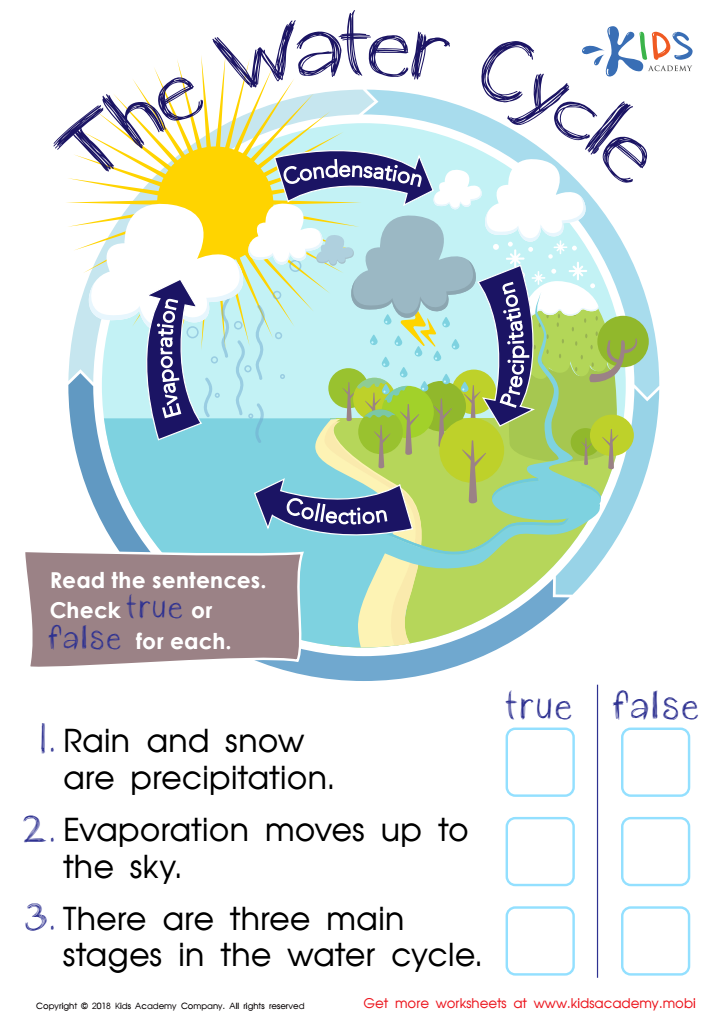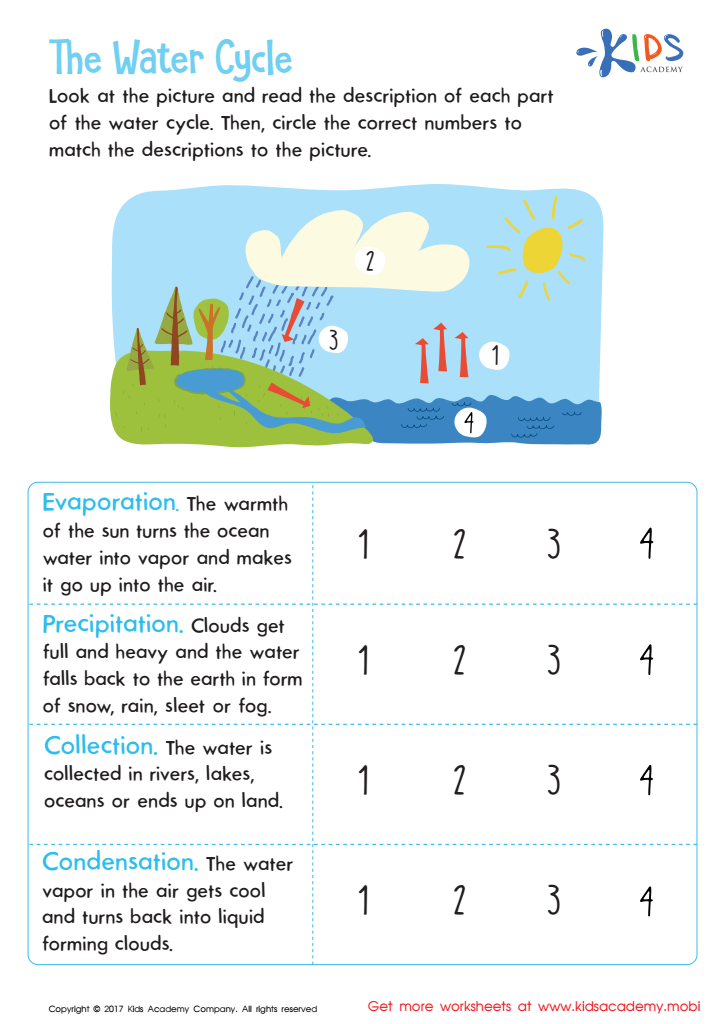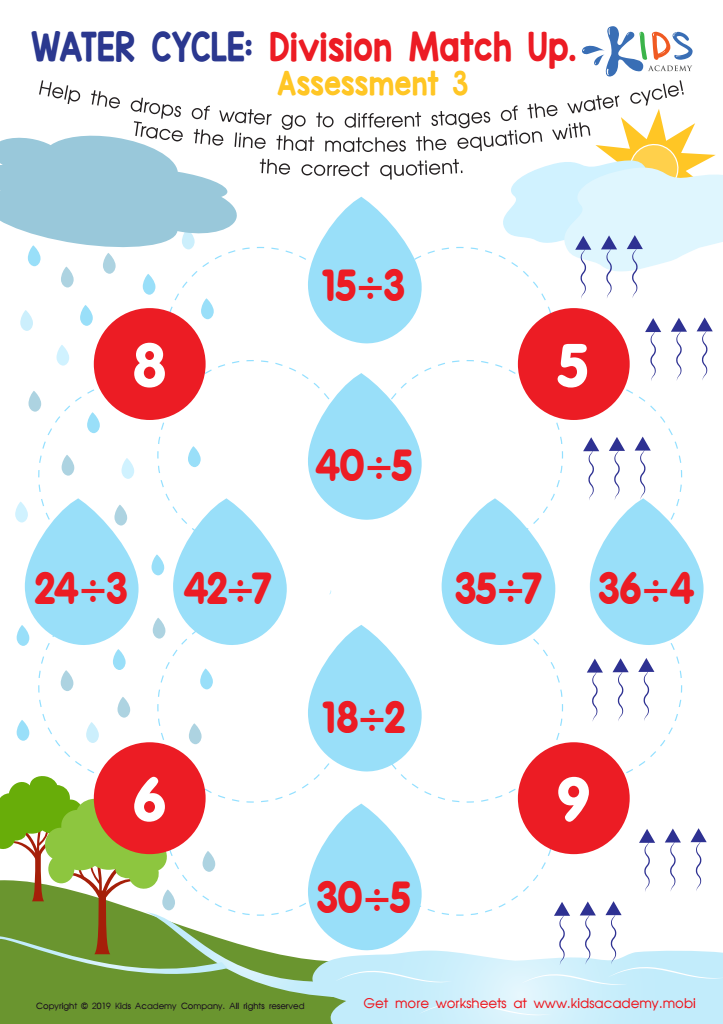Understanding water cycle Worksheets for Ages 4-8
3 filtered results
-
From - To
Explore our engaging "Understanding Water Cycle Worksheets" designed specifically for children aged 4 to 8! These interactive worksheets help young learners grasp the essential concepts of the water cycle, including evaporation, condensation, precipitation, and collection. Each worksheet is tailored to promote critical thinking and creativity through fun activities, drawings, and simple explanations. Perfect for teachers and parents, these resources encourage hands-on learning while fostering a love for science. Dive into the world of nature and water with our colorful worksheets that make learning both enjoyable and educational! Start your child's journey to understanding the beautiful process of the water cycle today!


The Water Cycle Worksheet


The Water Cycle Worksheet


Water Cycle Division Match Up Assessment 3 Worksheet
Understanding the water cycle is essential for children ages 4-8 because it instills fundamental scientific concepts, promotes environmental awareness, and enhances observational skills. At this age, children are naturally curious, and engaging them in discussions about the water cycle fosters critical thinking. They learn how water evaporates, condenses, and precipitates, developing a grasp of Earth's processes and how they affect life.
Moreover, awareness of the water cycle encourages appreciation for natural resources. Teaching children about where water comes from and how it is recycled through nature can nurture responsibility towards conservation. Kids are empowered to understand the importance of clean water, which lays the groundwork for sustainable living habits as they grow.
Additionally, the water cycle can connect to various subjects such as art, storytelling, and weather, making learning multisensory and fun. Activities like drawing cycles, observing rain, or playing games related to water help solidify these concepts. Ultimately, by introducing the water cycle early on, parents and teachers not only cultivate a sense of wonder about the world but also prepare children to be informed stewards of the environment. This foundational knowledge is crucial as they progress in their education and develop their worldview.
 Assign to My Students
Assign to My Students















